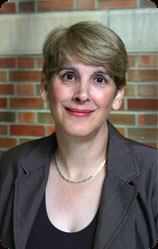Dr. Denise C. Park
Denise C. Park, Ph.D., FAAAS, FAPA, FAPS, FGSA is T. Boone Pickens Distinguished Chair in Brain Science, University Regents’ Research Scholar, The Center for Brain Health, University of Texas at Dallas. Her fields of professional interest are (a) the cognitive neuroscience of aging, (b) memory processes and aging, (c) culture, cognition, and aging, and (d) impact of neurobiological changes on cognition in everyday life.
Denise’s primary research interest is in understanding the role of age-related changes in memory function at the basic level (through functional neuroimaging techniques and behavioral studies) as well as the implications of these changes for society (in cross-cultural studies and work in medical information processing).
Her neuroimaging work focuses on mapping the changing neural circuitry associated with encoding and retrieval processes across the lifespan, using the study of picture memory and imagery formation. Park and colleagues address issues of neural plasticity and dedifferentiation of neural function as a function of age across multiple brain sites (primarily dorsolateral prefrontal cortex, hippocampus, and ventral-visual cortex).
Denise’s cross-cultural research studies have focused on the basic cognitive processes that exist between members of Asian and Western cultures and how these differences are magnified or moderated by the aging process. Ongoing studies look at the mechanisms underlying efficient memory function — speed of processing and working memory; the mechanisms underlying cultural differences in memory — field dependence, analytic processing and categorization; memory function, with an emphasis on understanding how different types of cues support memory in one culture but not another.
Her work on cognitive function in applied settings is focused on developing techniques for remembering that depend on processes that do not decline with age, particularly automatic processes. She and colleagues have demonstrated that that simple intervention techniques that involve imagining future events (such as taking medication) result in significant gains in adherence behaviors for older adults, due to the reliance on a memory system that is subjected to little or no age-related decline.
Denise is Science Editor of The American Psychologist, and on the Editorial Boards of Aging, Neuropsychology, and Cognition and Gerontology. She is on the Board of Directors of The American Psychological Society.
Denise coedited Communication, Technology and Aging: Opportunities and Challenges for the Future, Cognition, Aging, and Self-Reports, Medical Adherence And Aging: Social And Cognitive Perspectives, Cognitive Aging, and Processing of Medical information in Aging Patients: Cognitive and Human Factors Perspectives, and coauthored Age and culture modulate object processing and object-scene binding in the ventral visual area, Contextual interference in recognition memory with age, A broad view of medical adherence: The importance of cognitive, social, and contextual factors, and Improving cognitive function in older adults: Nontraditional approaches. Read the full list of her publications!
Denise earned her B.A. in Psychology (Summa Cum Laude) at Albion College in 1973 and her Ph.D. in Experimental Psychology at the State University of New York At Albany in 1977. She is a Fellow of the American Association for the Advancement of Science, Fellow of American Psychological Association, Div. 1, 3, 20, Fellow of Gerontological Society of America, and Fellow of American Psychological Society.
